Introducing the Incubator Funding and Support Program
The Incubator is on! DASH has launched its latest funding and support program, which seeks to explore equitable data governance, equitable grantmaking, and policy that impacts systems change.
We’re pleased to announce the awardee-participants in DASH’s 2024–2025 Incubator. The awardees, all members of established multisector or multi-focus collaborations, are ready to deepen their data-equity practices through equitable data sharing.
Atlanta Regional Collaborative for Health Improvement (ARCHI)
Atlanta, GA
ARCHI is a coalition of public, private and nonprofit organizations committed to improving health in the Atlanta region. ARCHI seeks to build a coordinated system of care that addresses social determinants of health and aids in navigating complex and siloed services. In the Incubator, ARCHI plans to expand its Rent, Mortgage, and Utility Relief Portal.
DataHaven
New Haven, CT
DataHaven provides Connecticut-based data on well-being and equity. Its Community Wellbeing Survey, conducted every 1 to 3 years, collects data from Connecticut residents to produce reliable information that is not otherwise available to the public. In the Incubator, their focus is to improve data equity by expanding language options and topics for the survey.
Eau Claire City-County Health Department
Eau Claire, WI
The ECCCHD seeks to build a healthier community for all through prevention-focused programs and partnerships. In the Incubator, they plan to develop a structure of health equity and data governance within their death review teams, which are tasked with understanding risk factors and circumstances leading to fatalities and opportunities to reduce fatalities.
Holly City Development Corporation
Millville, NJ
HCDC works as a catalyst for change in the Center City neighborhood of Millville, NJ through their work around economic development, housing, and community development. Their Incubator focus is building connections and relationships with community members to better understand equity, data governance, and policies in their organization.
Iowa Community HUB
Clive, IA
Iowa Community HUB is a nonprofit community care hub that collaborates with health systems and community partners to prevent and manage chronic disease for Iowans of all ages, abilities, and incomes. In the Incubator, the HUB plans to build equitable, community-driven data governance systems for data sharing between healthcare and social care.
United Way of the Lakelands
Greenwood, SC
United Way of the Lakelands’ mission is to connect people, resources, and organizations to create thriving communities in and around Greenwood, South Carolina. Their Incubator focus is to invest in their data collection, analysis, and dissemination processes through cross-functional teams that include community members, staff, and subject matter advisors.
VIA LINK
New Orleans, LA
VIA LINK provides crisis support, connects people to resources and services, and provides data to ensure that policies and programs meet community needs in Louisiana. Their Incubator focus is to empower people and agencies to build more people-centric, equitable data practices and to increase data literacy in Louisiana and in the South overall.
WNC Health Network
Asheville, NC
WNC Health Network supports community health and well-being across western North Carolina by collecting and expanding access to high-quality health data, enhancing and supporting health communications, and working collaboratively to strengthen health improvement. Their Incubator focus is to uncover disparities and understand social determinants affecting people. The Incubator serves as a learning, sharing, and support space for participants to develop goals around equity, data governance, and policy, as well as methods and metrics for reaching those goals. In this virtual space, participants gather regularly with their program peers and DASH staff, soon to be joined by community members and national mentors.
Along with peer and mentor support and program guidance, participants receive funding to compensate community members with lived experience for their co-design work. Awardees also receive flexible funding to match their needs and capacity, including for crucial equity-focused and systems-change functions such as operations, planning, and idea development.
The Incubator seeks to provide the conditions for a slower pace of exploration that allows for the rich, nonlinear work of relationship-forging and equity-building. This includes the freedom to try things that don’t yield immediate returns but that provide learnings for progress, pivots, and iterations.
A flexible approach. Peer and mentor support. Co-design of program goals. Through these components, DASH hopes the Incubator will contribute to grantmaking equity as well as equitable data governance and policy change. For organizations to make meaningful, systemic change, funders and others currently holding power must be willing to change, too.

